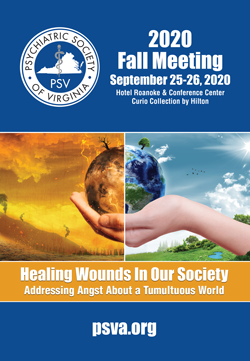Summer/Fall 2020 Issue |
|
Early Exposure to Addiction Education for Future Generations of Medical Providers
By Hninn Lwin, MS, MS1; Stephanie Peglow DO, MPH
The opioid overdose epidemic in the United States claims thousands of lives annually and costs billions of dollars across healthcare, counseling, and law enforcement. Medical personnel play an important role in treating addiction. However, negative attitudes from physicians towards substance use disorders influences the way they manage patients, lowering the quality of care.
Students at Eastern Virginia Medical School (EVMS) in Norfolk, Virginia seek to reduce future physician bias towards addiction with REVIVE!, a program that trains voluntary participants on how to recognize and respond to an opioid overdose emergency with the administration of naloxone. The program chapter at EVMS was introduced and developed throughout 2018, before kickstarting officially as a service-learning engagement curriculum in Fall 2019. The goal of REVIVE! is to provide an early exposure in medical training through education on the topic of substance use disorders, acknowledgement of stigma, and to encourage medical students to work with the community ultimately influencing an attitude of compassion.
We evaluated whether participation in teaching REVIVE! sessions in the Norfolk community by EVMS students influenced an attitude change and overdose knowledge retention compared to those that did not. Anonymous surveys were given to the student participants after their initial training and again six months later. The following validated surveys were used: “Opioid Overdose Attitude Scale (OOAS),” “Opioid Overdose Knowledge Scale (OOKS)” and “Drug & Drug Users’ Problems Perceptions Questionnaire (DDPPQ).”
OOAS and DDPPQ uses a Likert scale to measure attitude towards opioid overdose management and working with people who use drugs, while OOKS tests knowledge about opioid overdose. Results showed that at 6 months, students who participated in community trainings, on average, had a more positive attitude towards working with people who use drugs compared to baseline data. In contrast, students who did not participate in community trainings had a more negative attitude towards working with people who use drugs. Participating students also scored higher on the opioid overdose knowledge scale than non-participating students. Measuring student attitudes towards managing an overdose showed that community-participating students’ concerns on dealing with an overdose and willingness to intervene in an overdose situation were more positive.
In conclusion, medical students who trained community members after their initial REVIVE! training session had a more positive attitude towards working with people who use drugs, better retention of opioid and overdose knowledge, and generally a more positive attitude towards managing an opioid overdose than students who did not participate in teaching the community. REVIVE! will continue to be a learning opportunity that introduces the next generation of medical providers to the topic of opioid use disorder. Students will experience close interactions with the community, unique perspectives and insight from community leaders, and obtain a better understanding of the personal aspects and struggles of addiction and substance use.
YOUR NEWSLETTER IS NOW AVAILABLE ON YOUR SMARTPHONE AND TABLET!
JOIN PSV TODAY!
PLAN NOW!
PSV 2020
FALL MEETING
September 25-26, 2020
Hotel Roanoke
&
Conference Center
Curio Collection by Hilton
APA Find a Psychiatrist
Are you accepting new patients?
Opt into APA’s “Find A Psychiatrist” database. To view the functionality or opt-in,
CLICK HERE
FYI: A link for this option has been added to the PSV website. Select the “About” button and then “Find a Psychiatrist” from the drop down.




